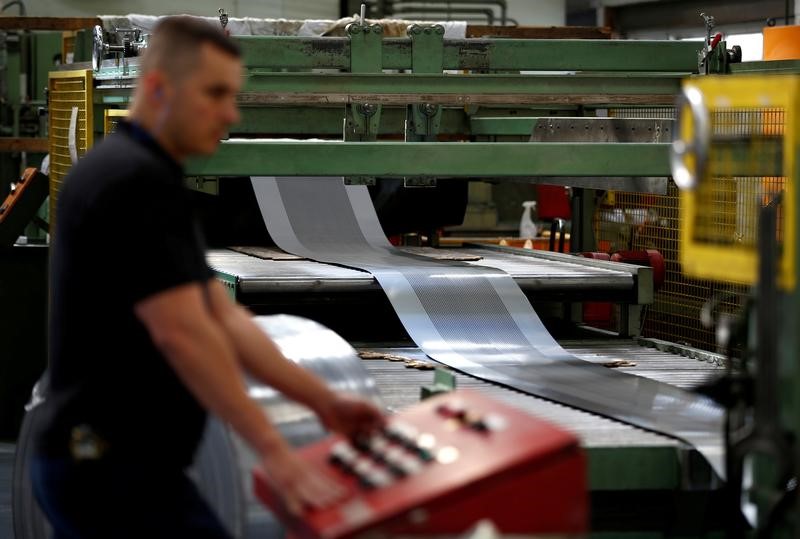LONDON (Reuters) - British manufacturing growth cooled unexpectedly in November as factories grappled with soaring costs caused by sterling's slump after Britain voted to leave the European Union, while the weaker pound failed to boost export orders as much as in previous months.
Thursday's Markit/CIPS UK Manufacturing Purchasing Managers' Index (PMI) fell to 53.4 from 54.2 in October, undershooting expectations for a rise to 54.5 in a Reuters poll of economists.
Survey compiler IHS Markit said manufacturing looks set to contribute to economic growth in the fourth quarter, pointing to a "solid" rate of expansion that remains above its long-run trend.
Britain's economy has performed much better than expected since June's vote to quit the EU. But a bigger test will come next year when inflation is expected to rise sharply, eating into households' spending power.
The PMI's gauge of prices paid by factories for materials and energy shot up at a rate just shy of October's near six-year high, while prices of finished goods also rose sharply again.
A clear majority of respondents who offered a reason for rising costs pointed to the weakness of the pound, which is down around 19 percent against the U.S. dollar compared with its level before June's vote for Brexit.
"The concern is that higher costs may in time offset any positive effect of the weaker exchange rate, especially given that export order-book growth has already waned markedly from September's five-and-a-half year high," said Rob Dobson, senior economist at IHS Markit.
Almost all economists polled by Reuters expect consumer price inflation to overshoot the Bank of England's 2 percent target next year.
A manufacturing survey from the Confederation of British Industry published last week showed the biggest increase in price pressures for nearly three years, although new orders rose at the fastest rate since before the Brexit vote.
The outlook for business investment is another doubt hanging over the British economy next year. The IHS Markit survey showed signs of weakness.
"The trend in new orders for investment goods such as plant and machinery has eased sharply so far in the fourth quarter and will need to improve if investment is to continue to contribute positively to economic growth," Dobson said.
Manufacturers hired staff at a slightly slower pace than in October, the PMI showed.
The PMI surveys often differ with official data on Britain's manufacturing sector. In the July-September period, manufacturing shrank by almost 1 percent in quarterly terms, the Office for National Statistics said last week.
